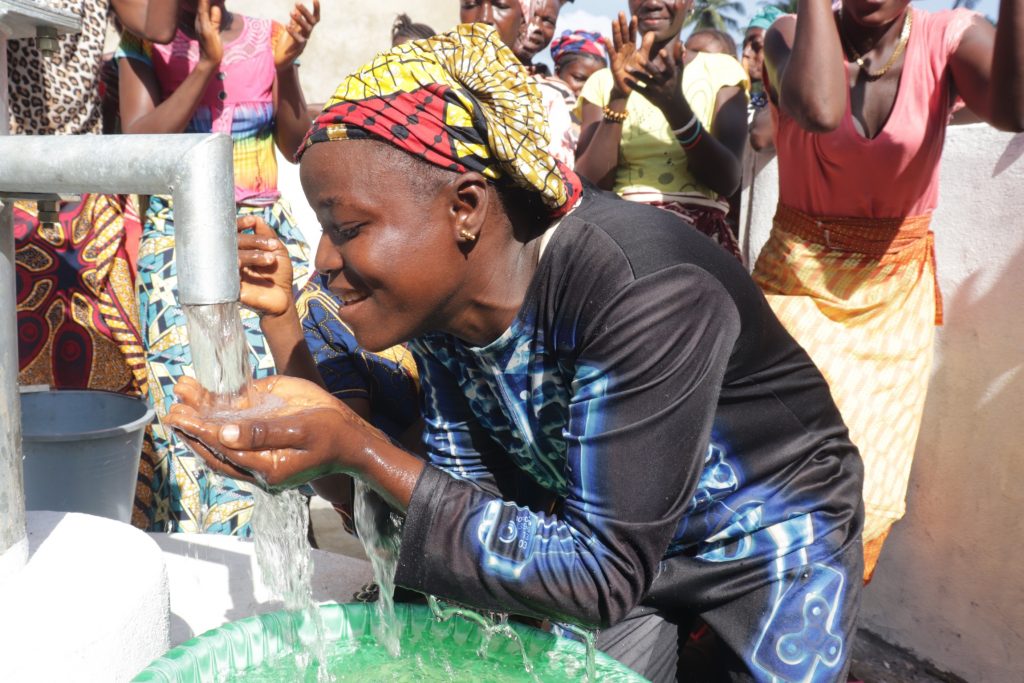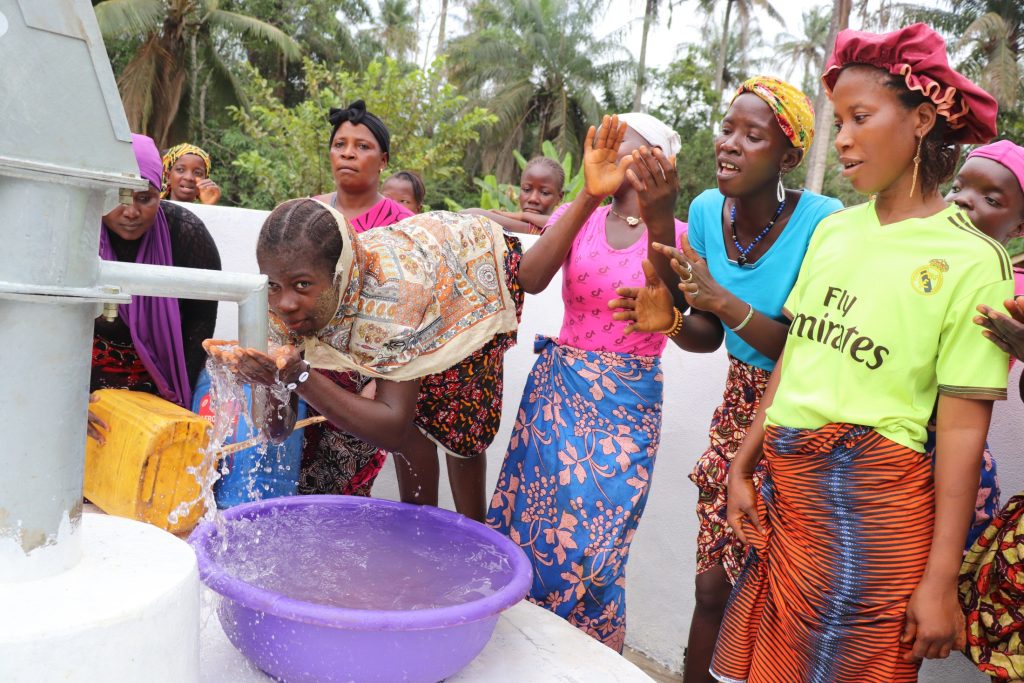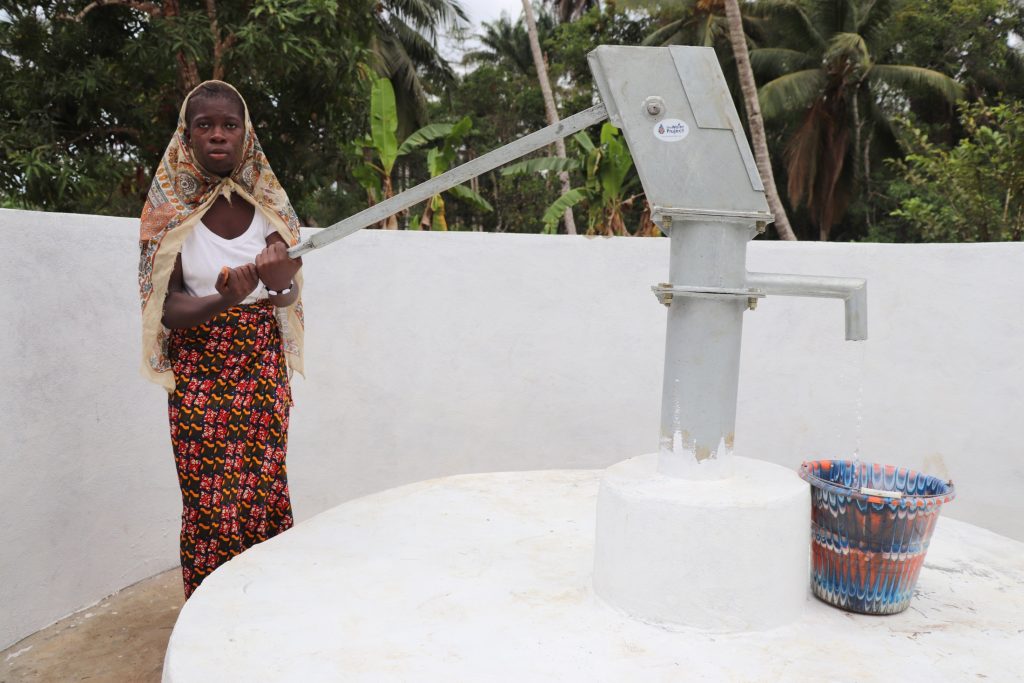Dreams of College and Careers: Why Water is Essential to Women’s Equality
Saturday, August 26th was National Women’s Equality Day in the United States — a holiday created in 1973 to commemorate women’s right to vote.
In the United States, women’s equality has made great strides, but there are still ways in which women are at a disadvantage. All inequality is worth addressing, of course. But it’s also good to remember where the United States stands compared to other countries.
“It is easier for a girl child to be asked to skip school than a boy,” said 16-year-old Mariatu from Raka Community in Sierra Leone. “They are supposed to make sure the compound (yard) is swept, the dishes are clean, and there is sufficient water for the rest of the day. All through this ordeal, they are expected to keep a nice smile and be happy about [it]. When the benefits come, they are left in the shadows.”

In sub-Saharan Africa, water scarcity is one of the main things holding girls and women back from reaching their full potential. Women are four times more likely than men to collect water for their households when there is no water source at home. If the family is lucky, that might mean a five-minute walk to a water source. But in many cases, water-fetching, even for one jerrycan-full, takes hours or even a whole day.
Globally, women and girls spend 200 million hours per day collecting water. Young girls in school may have to collect water for both their household and their school if neither has a water source. All these hours the water crisis has stolen from girls and women could have been channeled into countless other things.
“Every step a girl takes to collect water is a step away from learning, play, and safety.” – Cecilia Sharp, UNICEF Director of WASH and CEED.
Increasing water access brings water closer. It allows girls to stay in school once their period starts, gives them free time to pursue their dreams, and keeps them safe at home.
In sub-Saharan Africa, adolescent girls are more likely to be out of school than adolescent boys. — UNICEF Gender Equality SDG Report for sub-Saharan Africa
To help you understand the ongoing gender inequality in sub-Saharan Africa and how water access can help solve it, we’d like to allow 16-year-old Maseray from Forikolo Community in Sierra Leone to share her story.

“As a young girl growing up in the village, work is my middle name,” Maseray said. “I work day and night, from one chore to the other, spending most of the time fetching water and doing laundry.
“My [school] uniform is a blue skirt and white top. Over the years, my white school top is normally damaged and stained before the school term gets to the middle. I use any water that is available to wash my uniforms. My parents cannot afford to buy a new uniform every school term. It is important to make sure the ones I have will last a long time. My family is hardly getting by and cannot afford to buy soap that can remove stains on whites.”
With the newly rehabilitated well in Maseray’s community, she is now dreaming of all the ways her life will be different going forward.
“For starters, I will have more time to clean the pots and pans very early in the morning, and hopefully, [I] will be able to make the two-mile walk to school on time. In the past, I was a regular latecomer, but now I will be able to be in school before the bell rings.
“I am going to be a better student; tardiness is a thing of the past. Before, no matter what time I [would] get up from bed, I [would] always be late or absent from school. I used to be ashamed of going to school late, and all the other students would watch me and laugh. Not to mention the stains on my uniform from using swamp water to wash my uniform.
“Now that this water point is complete, I will be able to live a life of comfort. I no longer must stand in long lines or get into an argument with anyone, which means more time to myself. If only people [could] see my heart, they [could] see that I am happier now than I have ever been before. I feel like I just received a large sum of money because of the water well.
“As a village girl, our dreams of becoming productive members of society are crushed because of limited or no financial assistance. I dream of leaving the village and pursuing a career as an accountant. After hearing from so many family members that schools are not for girls, I feel discouraged to just forget about school. I am encouraged by the water well, because there are people out there that think that I can and will make it in life. I know that everyone in the community is going to benefit from the water well, but I feel as if it was constructed for me alone. This water well is going to slowly help me realize my dreams.
“It is very important for all school-going children to have access to clean and safe water. The shame of going to school with a dirty uniform used to break my heart, more so that it [paralyzed] me from going to school every day. The fear of being laughed at is so paralyzing that I [would] immediately start feeling sick just thinking about going to school. Thank you, God, for moving me a step closer to achieving my dream. [For this] next school year, I am going to try my best to be among the top ten students in my class.”
Without water, the women and girls from sub-Saharan Africa are doomed to toil endlessly in the name of household harmony. But, as Maseray explained, once we create water access, doors open up.

“As a student, I am always looking for ways to improve my scores in school,” Mariatu (quoted at the beginning of the article) said. “This water well has reduced my trips to the swamp, which means I now have more time to study, which will eventually translate to better grades in school. I really want to surprise my parents by being the first in the family to make it all the way to college. That has always been my dream, but the distractions are plenty, and the negativity discourages me a lot.”
We at The Water Project hope Mariatu, Maseray, and the millions of girls like them can overcome the adversity between them and their future goals. But the ones still waiting can’t do it alone.
If you’d like to bring more girls across sub-Saharan Africa closer to flourishing futures, please consider sponsoring a project whose story speaks to you or even becoming a member of our Water Promise, a monthly giving community made up of generous people who know we need their help to keep water flowing for girls like Mariatu and Maseray.
Home More Like ThisTweet